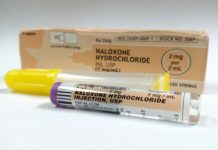during this year’s legislative session the state’s administration has proposed to devote more than $40 million to initiatives that prevent and treat addiction. The Legislature has declined to take any action, but Smith urged that to be reconsidered.
She explained that it would be essential for Minnesota to approve a comprehensive program that can address the damage caused by the opioid crisis and the probable future consequences of the current epidemic.
“Our families can’t afford to wait any longer for help,” Smith stated.
“Motor vehicle crashes were what injury prevention was all about because that was the leading cause of injury and mortality but that’s no longer the case as opioids have surpassed motor vehicle crashes,” Roesler said, adding that Minnesota has also seen a recent increase in the number of deaths associated with alcohol.
“The increase in alcohol mortality and alcohol-attributable hospital treatment parallels the increase in the drug overdose and opioid overdose deaths that have been going on,” he said. “What this data suggests to me is that maybe as a society we are actually really changing our relationship with chemicals and are becoming a more addicted society, which is disconcerting.”
















